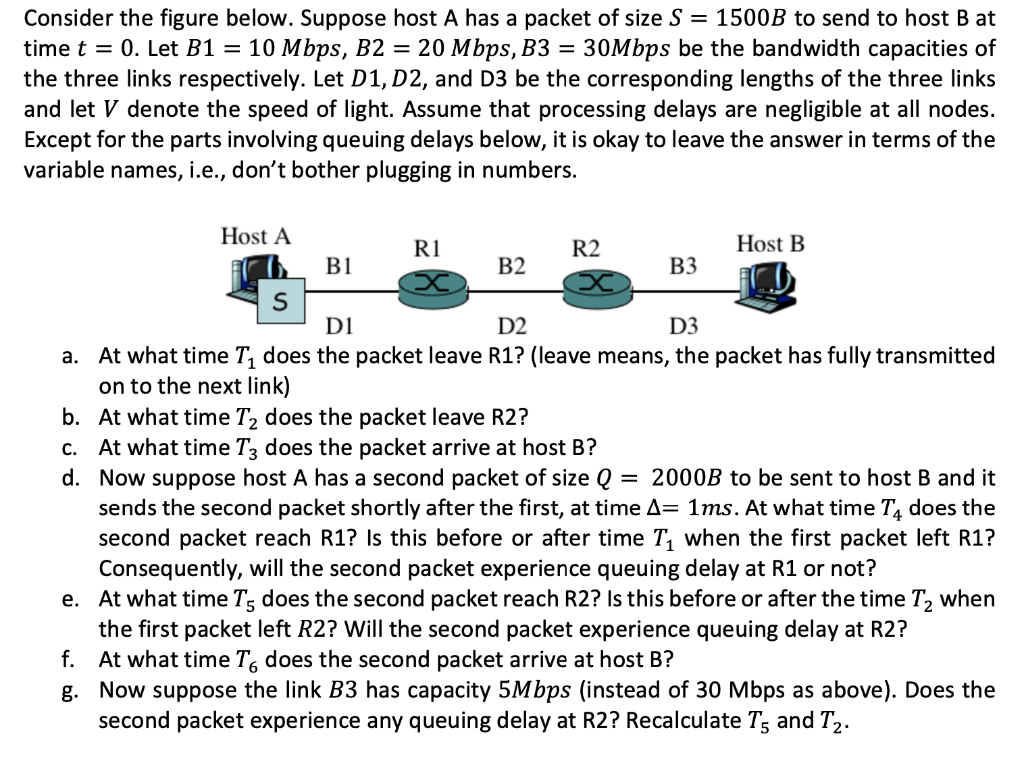Answered step by step
Verified Expert Solution
Question
1 Approved Answer
Consider the figure below. Suppose host A has a packet of size S=1500B to send to host B at time t=0. Let B1=10Mbps,B2=20Mbps,B3=30Mbps be the

Step by Step Solution
There are 3 Steps involved in it
Step: 1

Get Instant Access to Expert-Tailored Solutions
See step-by-step solutions with expert insights and AI powered tools for academic success
Step: 2

Step: 3

Ace Your Homework with AI
Get the answers you need in no time with our AI-driven, step-by-step assistance
Get Started


